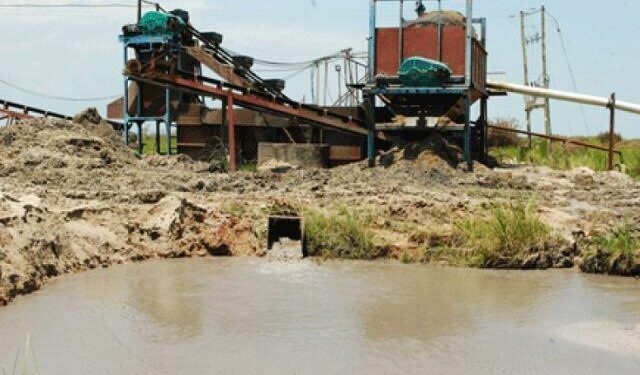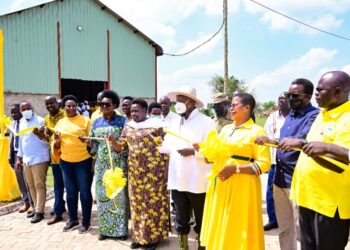The National Environment Management Authority (NEMA) has unleashed an unprecedented directive, saying no quarter will be given to investors engaged in sand mining within the Lwera wetland.
This is a resounding move to rescue the ecological integrity of the beleaguered Lwera swamp along Masaka highway.
Dr. Akankwasa Barirega, the unwavering Executive Director of NEMA, did not mince his words, asserting, “No one mining sand in Lwera is going to see their permit renewed. The clock is ticking for those who have exploited this sanctuary illegally.”
This thunderous proclamation echoed through Kalungu district on Tuesday, leaving little room for ambiguity.
Lwera swamp stands as an indispensable water catchment area, weaving together rivers, wetlands, and vital water reservoirs across Gomba, Mpigi, and Kalungu districts before ultimately pouring into the expanse of Lake Victoria.
Concerned citizens have long voiced their distress over sand mining and other practices, such as rice cultivation, which have acted as a straitjacket on natural water conduits, resulting in calamitous floods.
Yet, these pleas from the public have too often fallen on deaf ears, as sand mining activities were often championed by influential titans – wealthy magnates and formidable Chinese stakeholders with a stronghold on governmental affairs.
While parliament and other oversight bodies have valiantly stepped in, the resilience of mining operations post-regulation has become a disheartening pattern.
Whispers of clandestine transactions have even circulated, suggesting that currency has exchanged hands to ensure the invulnerability of these sand-grabbing enterprises.
Blame has invariably been levied upon NEMA’s doorstep for purportedly forsaking its duty to shield the environment by permitting the ceaseless plundering of sand.
Yet, according to the indomitable NEMA Executive Director, a seismic shift is on the horizon. All sand mining licenses in Lwera will be left to languish, and no fresh permits will be issued. It is a clarion call for the salvation of Lwera Swamp, a lifeline ensconced in Uganda’s environmental tapestry.
Dr. Akankwasa also turned his gaze towards the intricate issue of rice cultivation in the swamp, emphasizing the pressing need for rectification. He articulated, “We must rescue our wetlands, lest we face the fate of Libya’s floods.”
Kalungu’s vigilant Resident District Commissioner, Paddy Kayondo, attested to the urgency of enlightening the populace on wetlands, pointing out that some individuals hold land titles in these critical zones. He emphasized the challenge of eviction, underscoring that initial oversights allowed these titles to be granted.
Furthermore, he stressed the imperative of involving local authorities in decisions regarding wetland permits, stating, “The right procedure should have been consultation with leaders on the ground before NEMA officers convene in Kampala to grant permits for wetland use. This discrepancy makes it arduous for us to enforce presidential directives on evictions from wetlands.”
As NEMA assumes this unyielding stance, it is a rallying cry for the defense of Lwera Swamp, a vital nerve center in Uganda’s environmental mosaic. The battle lines have been drawn, and the destiny of this invaluable wetland hangs in the balance.
Do you have a story in your community or an opinion to share with us: Email us at editorial@watchdoguganda.com













